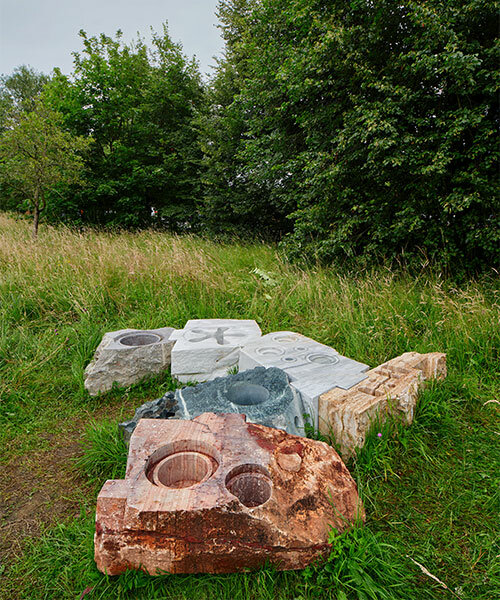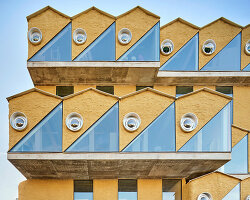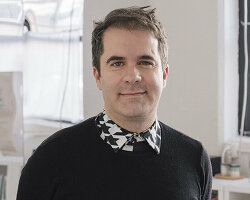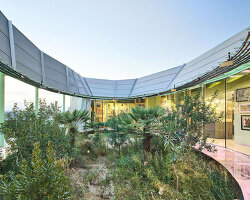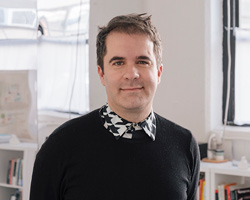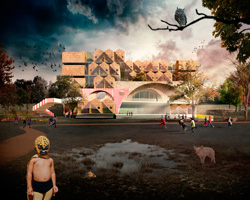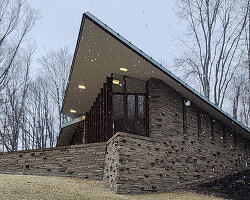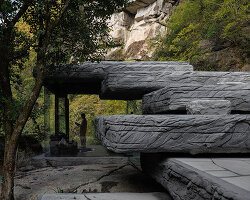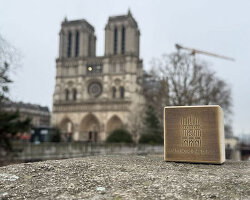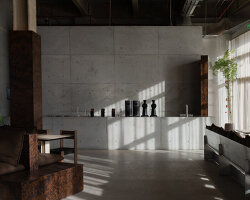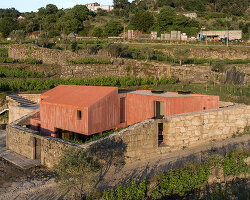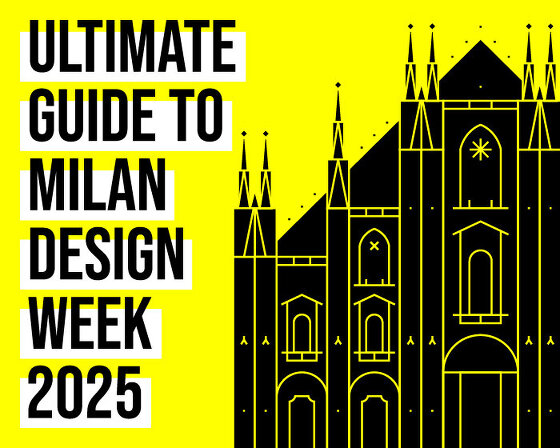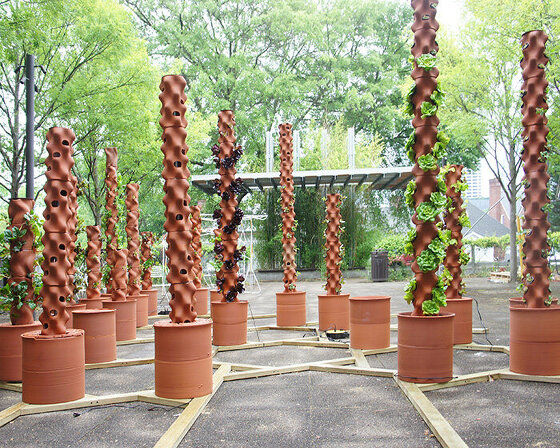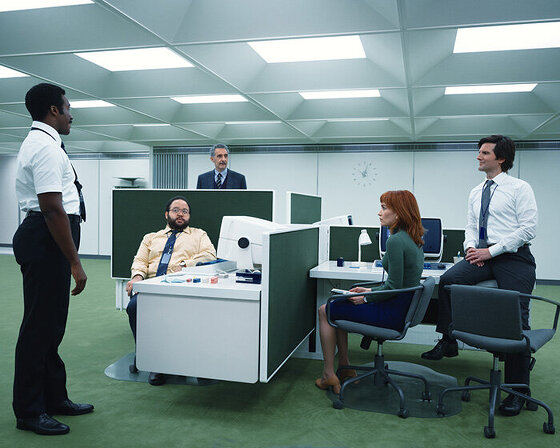Andrés Jaque unveils Transspecies Kitchen in Belgium
Cooking, digesting, growing, and decomposing are interconnected processes that create alliances between different forms of life. This is the central idea of the Transspecies Kitchen, a project by Andrés Jaque and the Office for Political Innovation (OFFPOLINN) which reutilizes marble waste from the stone extraction industry and transforms it into a sustainable open-air kitchen. Combining ecology, politics, and sustainable food preparation, the kitchen at the Middleheim Museum in Antwerp, Belgium is powered not by gas or electricity, but by harnessing energy through molecular interactions. Acting as a collective digestive system, the Transspecies Kitchen shows that metabolism is a shared process, dependent on collaborations beyond just humans.
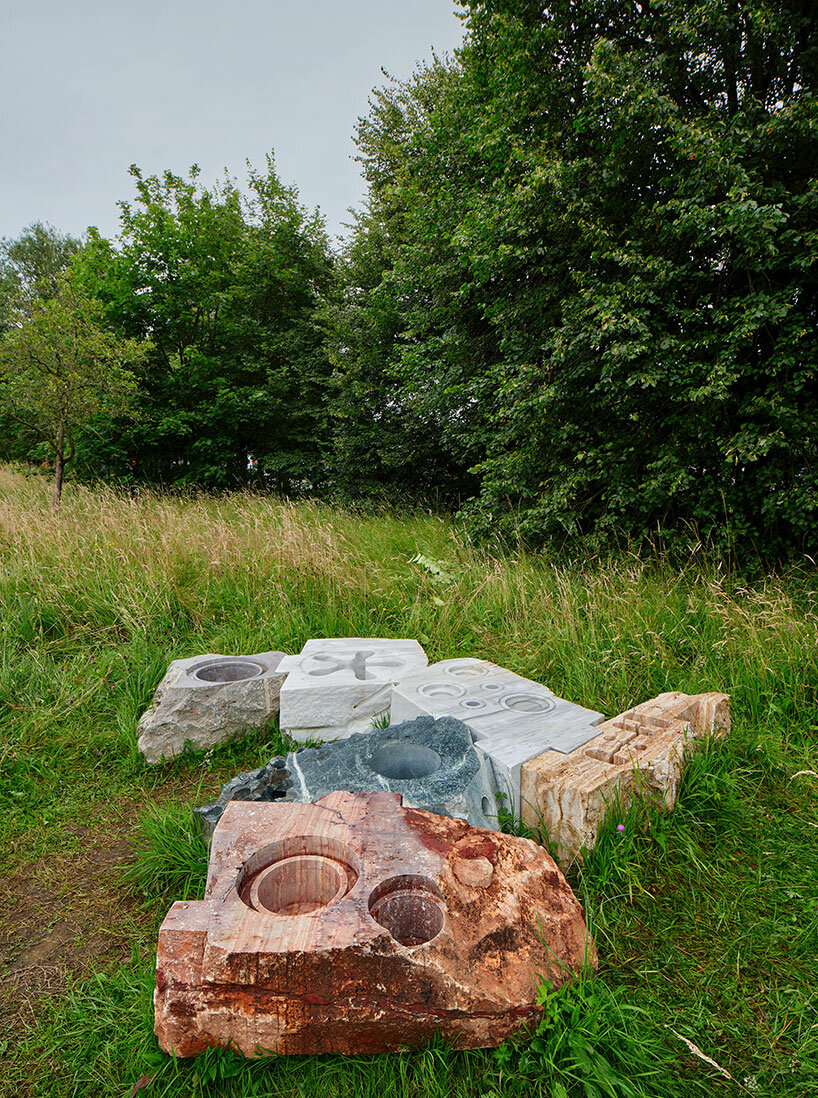
all images by José Hevia
sustainable Kitchening as a Collective Act
The Transspecies Kitchen emerged from a collaboration that began in 2021 between Andrés Jaque’s international architectural practice OFFPOLINN and Spanish stone fabrication company M-Marble Project. This unique kitchen aims to decarbonize cooking, using fermentation as the primary method of food preparation. Here, cooking is not just a physical act but an ecological and political one. The kitchen embodies the idea of ‘kitchening’ as a realm of collective living, highlighting the interdependence of all life forms. The ultimate expression of this is zymology, the science of fermentation using bacteria and fungi. This process makes the kitchen an active participant in life-making politics, embracing post-carbon cooking methods.
The kitchen itself is constructed from marble waste, a byproduct of the stone extraction industry. Typically, only 30% of quarried stone is used industrially, with the remainder discarded as waste. The Transspecies Kitchen challenges this wastefulness by repurposing discarded marble, transforming it with minimal alterations. This raw, unrefined architectural approach aligns with the project’s broader strategy of reducing industrialization and waste. Functioning as a collective digestive system, the Transspecies Kitchen demonstrates that metabolism is a shared process, reliant on alliances beyond just humans. This kitchen blurs the lines between cooking, eating, and decomposing, showing them as part of a continuous molecular progression.
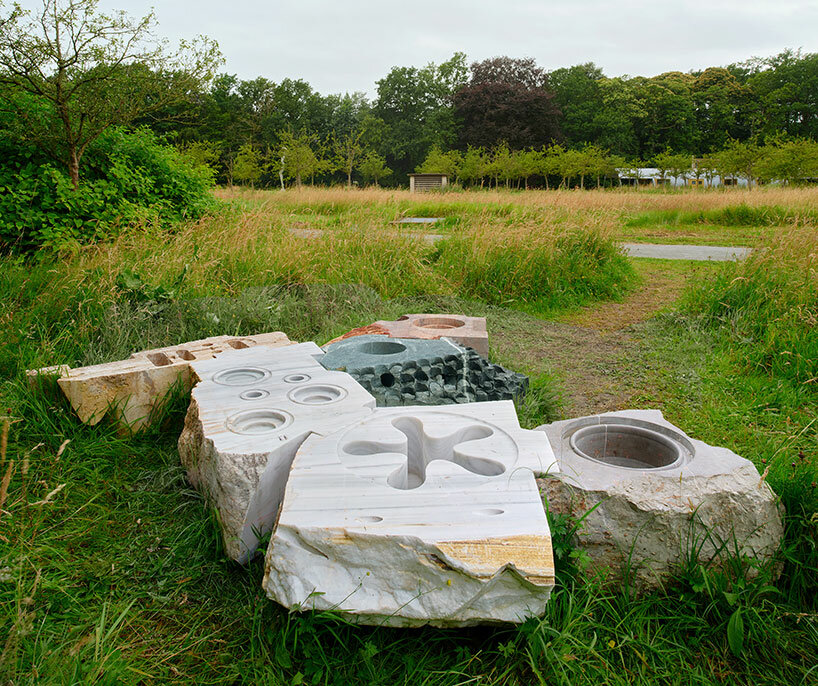
the kitchen is constructed from marble waste, a byproduct of the stone extraction industry
Savoring Ecosystem Interactions in Antwerp’s Forest
Starting in July 2024, the Transspecies Kitchen will be active throughout the summer at the Middelheim Museum’s forest. It will host Antwerphagia, an event that explores the interplay between eating and being eaten within Antwerp’s ecosystems. In the face of soil toxicity and climate crisis in Flanders, Antwerphagia seeks to foster new transspecies alliances grounded in mutual care. These alliances are experienced through human senses as various physical and emotional reactions, from taste and smell to intoxication and heartburn.
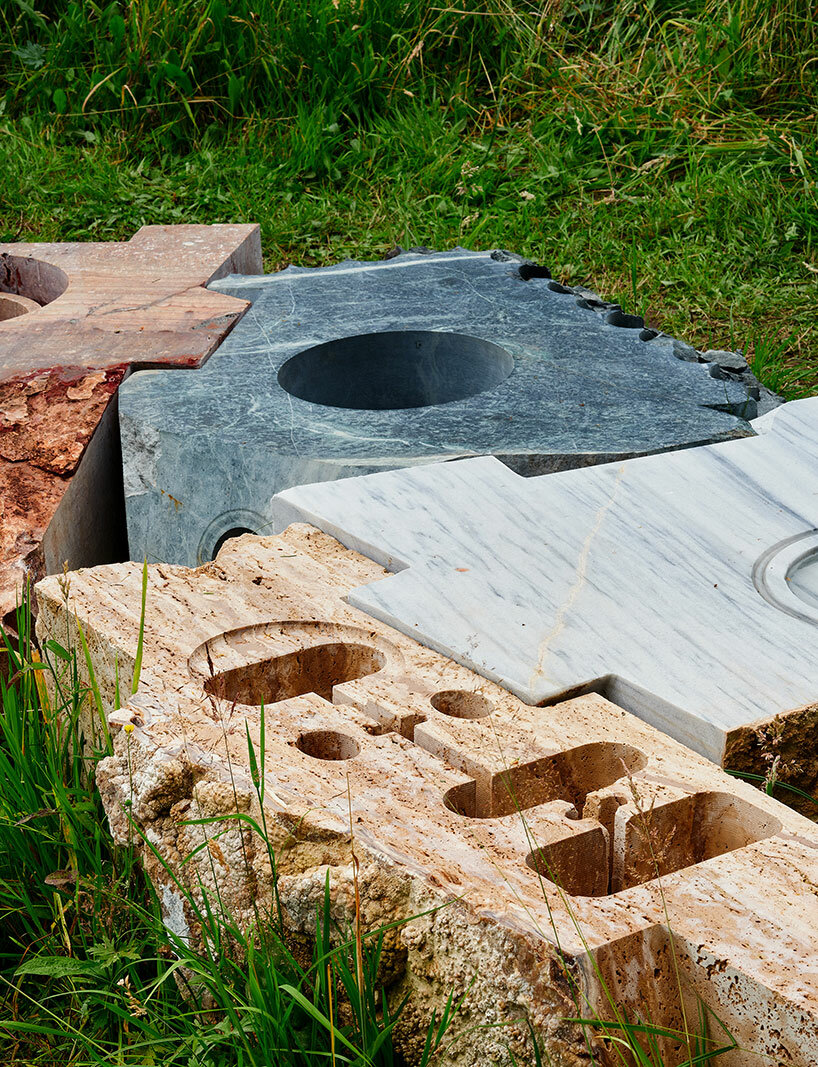
the Transspecies Kitchen repurposes discarded marble, transforming it with minimal alterations
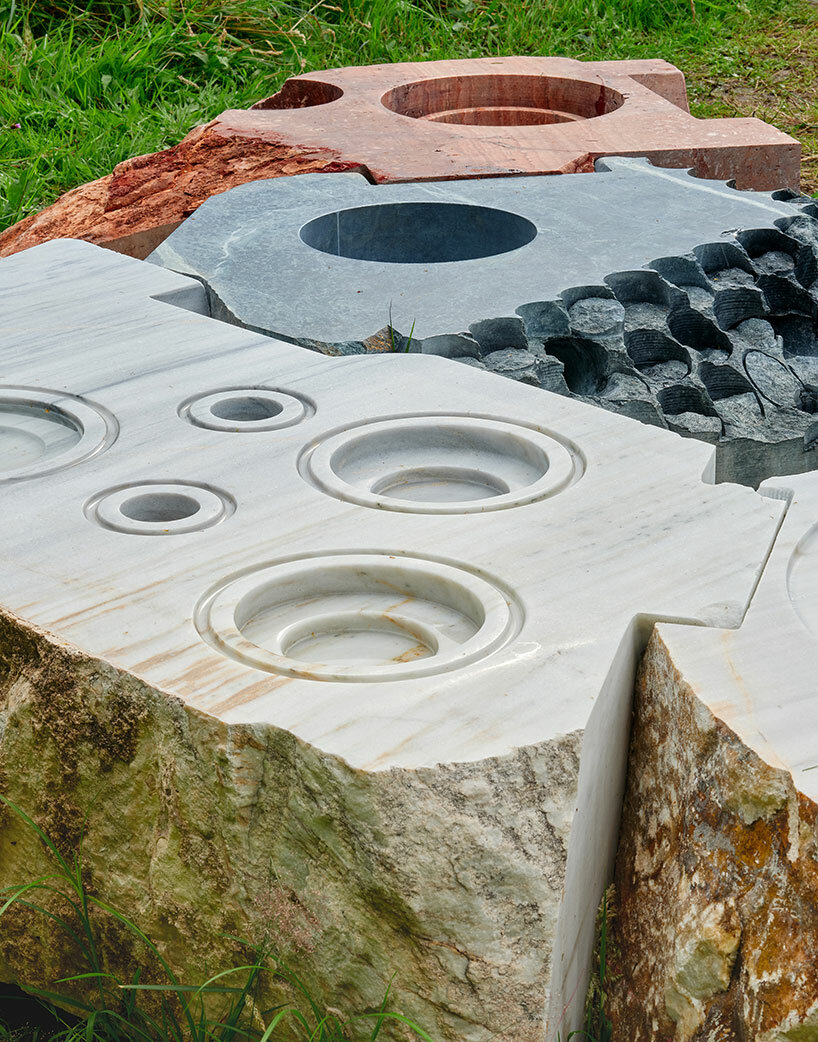
this raw, unrefined architectural approach aligns with the project’s broader strategy
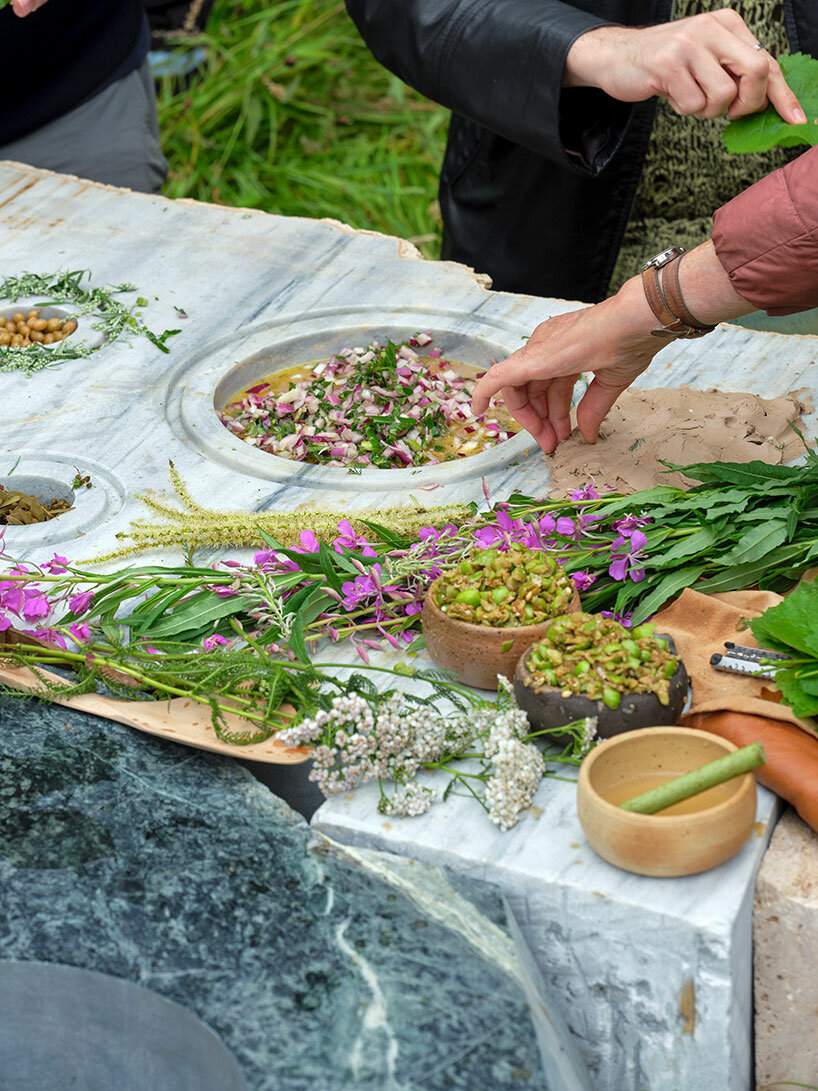
the kitchen is powered not by gas or electricity, but by harnessing energy through molecular interactions
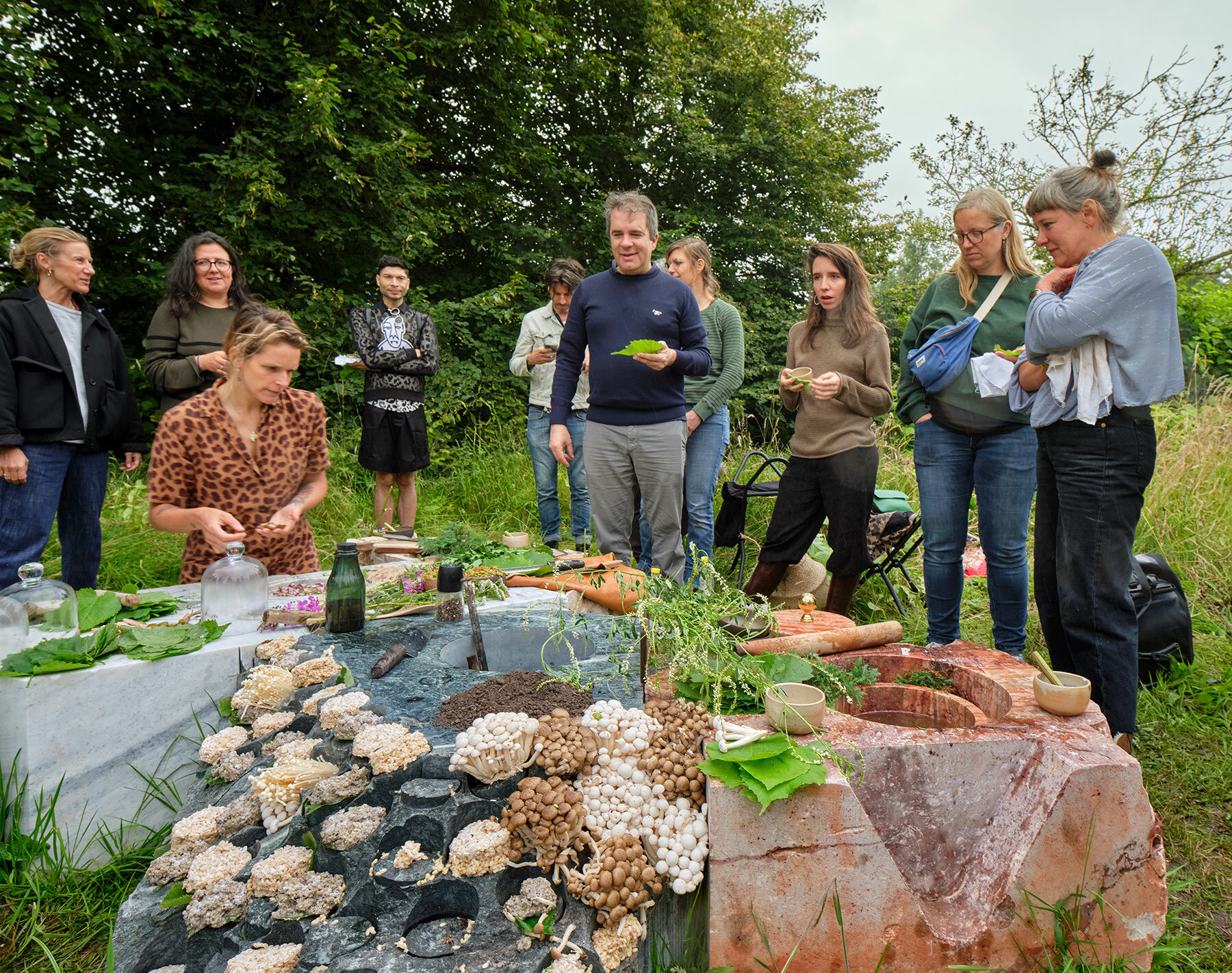
the kitchen embodies the idea of ‘kitchening’ as a realm of collective living
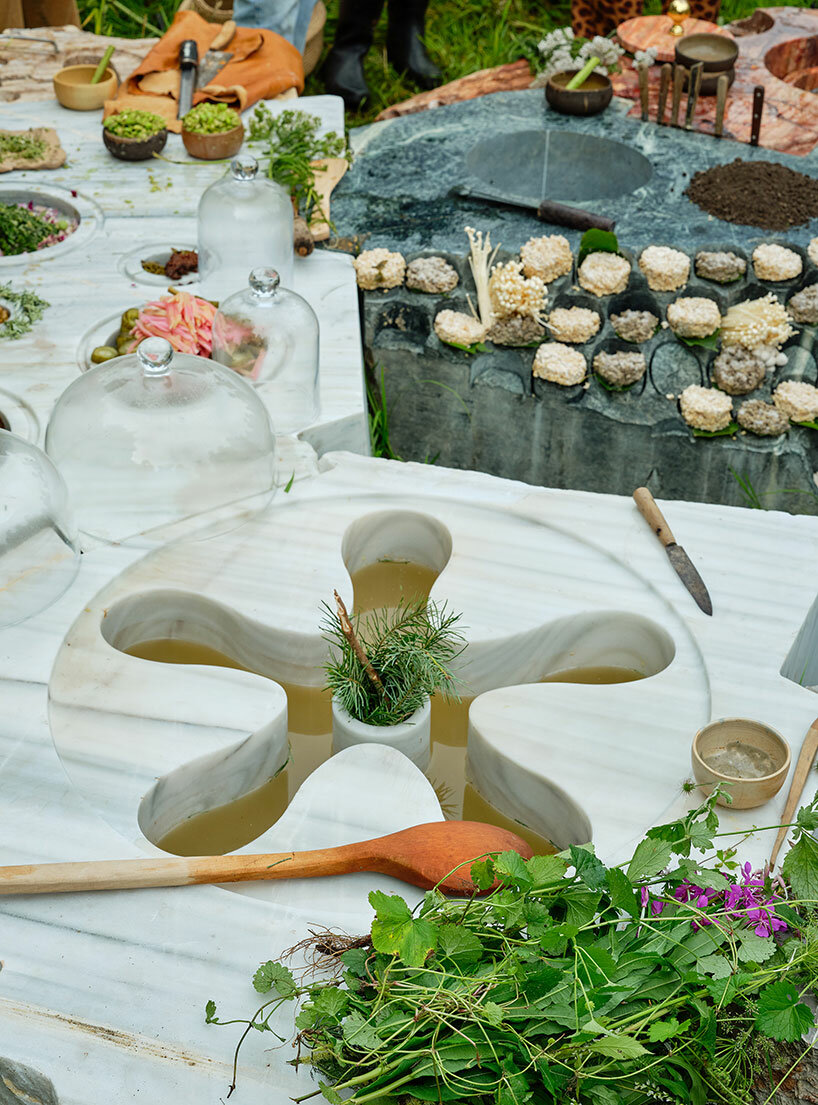
the unique kitchen uses fermentation as the primary method of food preparation
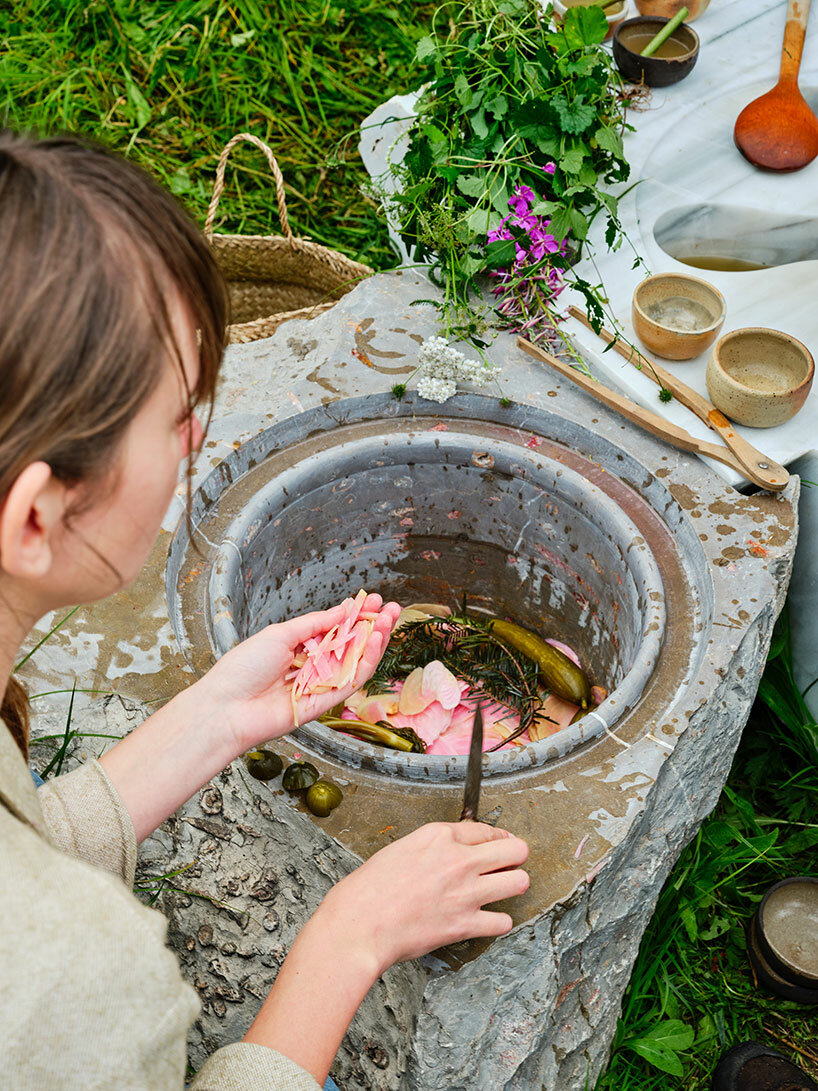
this process makes the kitchen an active participant in life-making politics, embracing post-carbon cooking methods
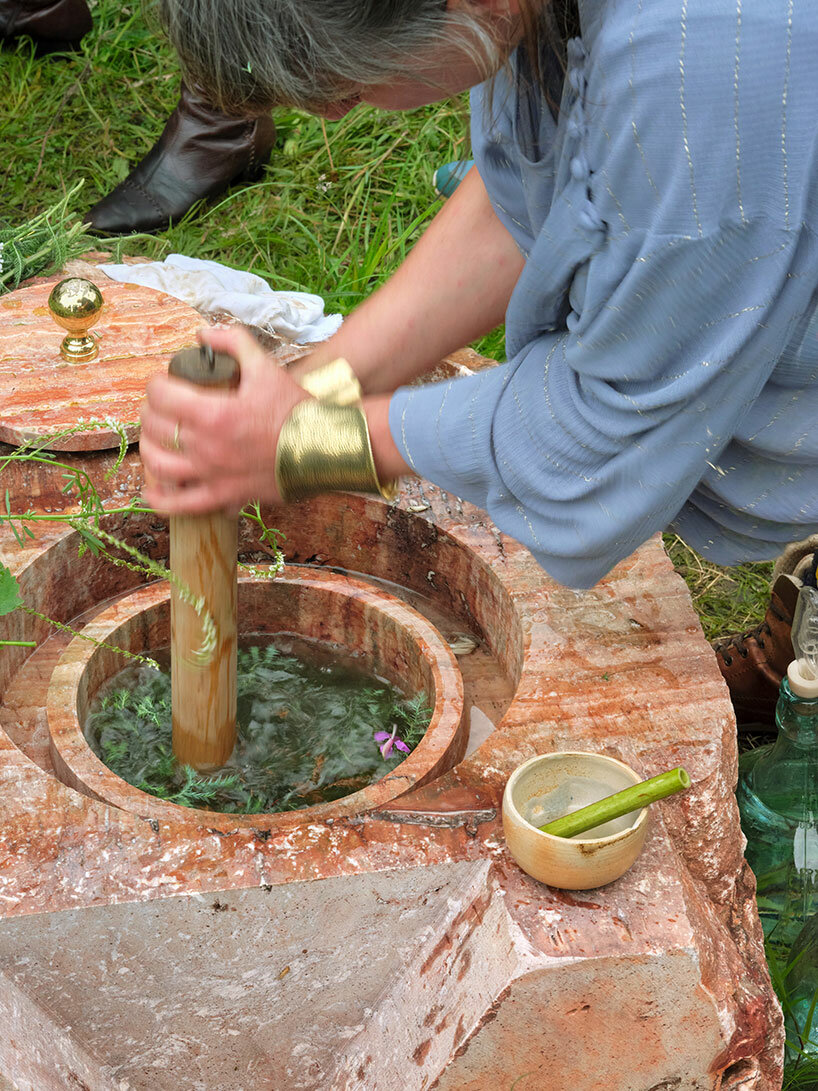
here, cooking is not just a physical act but an ecological and political one
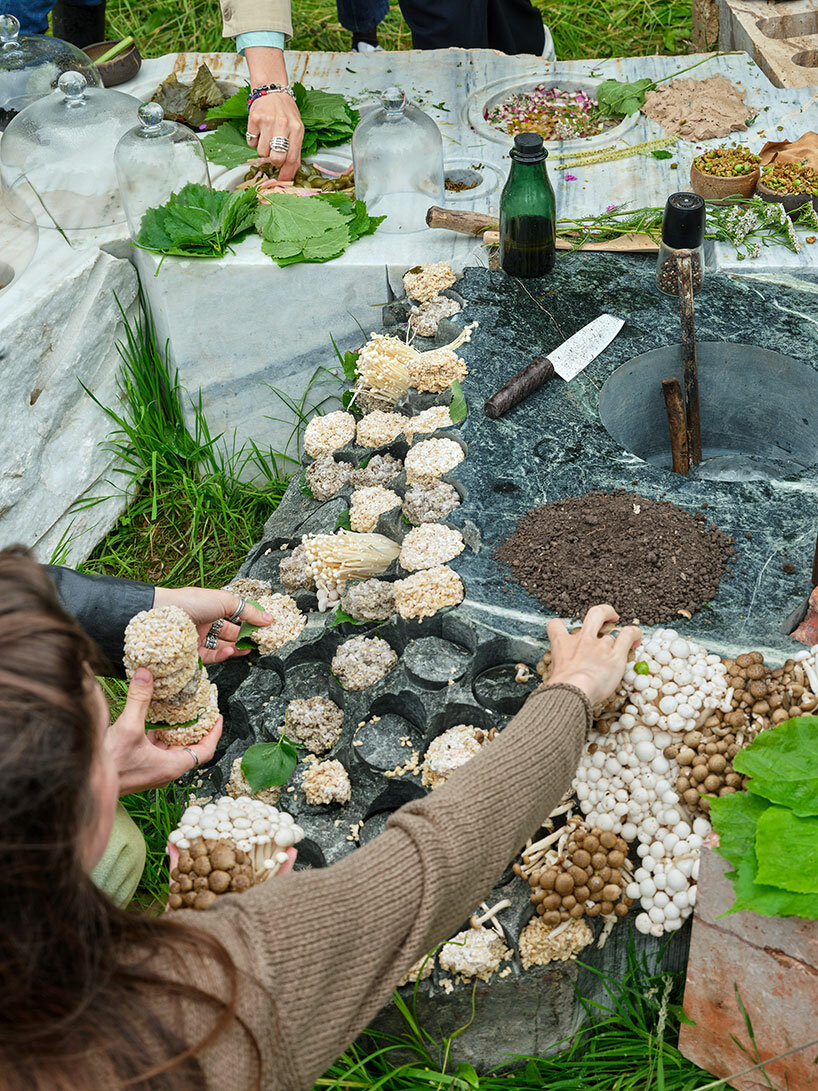
this kitchen blurs the lines between cooking, eating, and decomposing
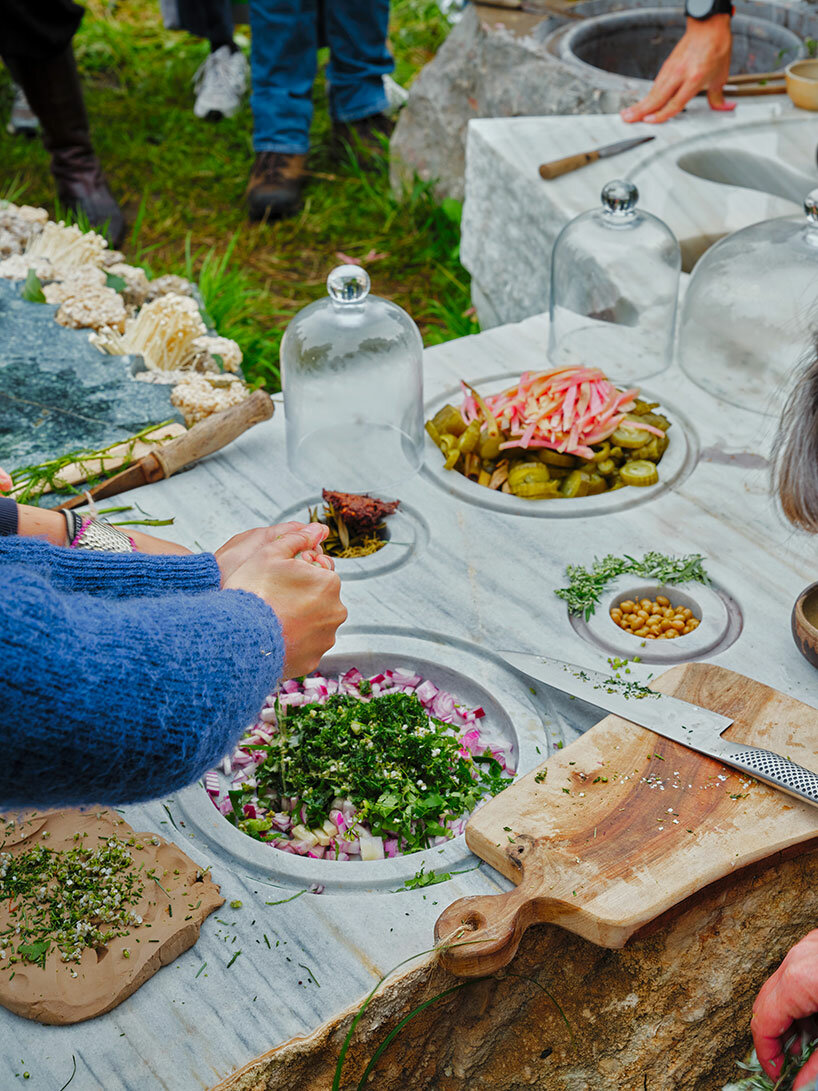
the Transspecies Kitchen functions as a collective digestive system
project info:
name: The Transspecies Kitchen, an Antwerphagia
designer: Andrés Jaque / Office for Political Innovation | @andres_jaque
in collaboration with: Natalie Schrauwen (Elder-Lab), as part of COME CLOSER program (Summer 2024), Middelheim Museum and DE SINGEL, Antwerp (Belgium)
team: Pieter Boons (curator), Anna Stoppa (assistant curator), Eve van Goey (exhibition assistant), Christian Huyghe (production coordinator)
photography: José Hevia
